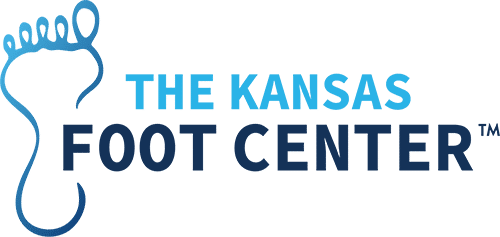Tending to Achilles Tendinitis
The Achilles tendon may be the largest and strongest of all the tendons in your body—and it has to be to keep you mobile for a lifetime—but this certainly doesn’t mean it is indestructible. A common injury for active adults (especially middle-aged men), Achilles tendinitis is an issue that can develop in the durable tendon. This injury can be a nuisance, but it is also quite treatable. Dr. Thomas D. Truong and our medical professionals here at The Kansas Foot Center can provide the care needed to get you back to your favorite sports and activities.
A Look at the Achilles Tendon
This particular tendon starts at the bottom of the calf muscle and runs all the way down to the back of the heel, where it connects. When the calf muscle contracts, the Achilles forces the foot to extend. Conversely, an elongating calf muscle results in the tendon pushing the foot upward. These are essential biomechanical processes used every time you walk, run, ride a bike, and even push down on your car’s gas pedal. It is highly unlikely for someone to develop a case of tendinitis from driving a car (even during cross-country trips), but there are certainly physical activities that do increase the risk for this common injury.
Achilles Tendinitis Basics
Put simply, Achilles tendinitis is an injury that occurs when the tendon becomes irritated or inflamed, often as the result of repetitive actions. As humans become older, the tendon begins to weaken and become increasingly vulnerable to injury. For these reasons, tendinitis tends to be more common for middle-aged individuals who only engage in physical activities on weekends—a.k.a. “weekend warriors”—or people who suddenly increase the duration and/or intensity of their workouts.
The main symptom associated with the Achilles injury is pain in the areas directly above the heel or in the back of the lower leg, especially following physical activity. This pain often increases in severity following prolonged workout sessions. In many cases, the pain begins as a mild-to-moderate ache, but then worsens over time. Stiffness and tenderness, usually experienced in the morning, are also signs of the condition.
There are various factors making the condition more likely for some groups of people than others, including:
- Gender and age. The demographic with the highest risk factor for Achilles tendinitis is middle-aged men.
- Physical issues. Flatfeet, obesity, and tight calf muscles can all increase the amount of strain placed on the Achilles tendon.
- Some risk factors are related to training practices. You have an increased risk for injury (tendinitis or otherwise) when running in worn-out shoes, exercising in colder climates, and frequently training on hilly terrain and hard surfaces.
- Medical conditions. Individuals who have diabetes or high blood pressure are also at greater risk for tendinitis.
Treatment Methods for Achilles Tendinitis
Self-care measures are often rather successful for treating this particular injury. A good starting point for your eventual recovery is the use of the RICE method (rest, ice, compression, and elevation). Our medical professionals can provide guidelines and recommendations for correctly using the RICE method. We also offer additional care that may include medication, physical therapy, and orthotic devices in your treatment plan for optimal recovery.
When cases are particularly severe (torn tendon, etc.), or conservative care is not enough, surgery might be recommended. There are a number of procedures, and any we recommend will depend on your specific case. Among others, these can include:
- Transferring a healthy tendon to fortify and repair the damaged Achilles tendon
- Removing damaged tissue (debridement) and repairing the remaining portion of the tendon
- Surgical lengthening of the calf muscle (gastrocnemius recession)
Naturally, recovery times do vary based on the amount of damage, the procedure, and the patient. In some cases, you may require up to 12 months of rehab before a full, pain-free recovery.
Expert Achilles Tendon Care for Kansas Patients
When you want the top podiatric doctors providing your foot and ankle care, you need to contact The Kansas Foot Center. We have a firm commitment to providing effective treatment to relieve your pain and restore your ability to participate in favorite activities. We can also answer any questions you might have about Achilles tendinitis, so give us a call at (316) 283-4330 or schedule your appointment online for our Wichita or Newton, KS offices today!
